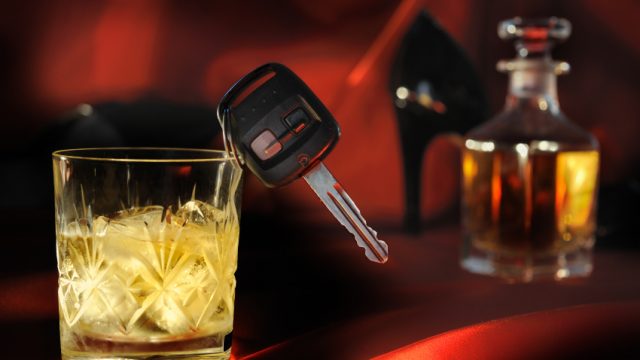Without Debate, ND Senators Approve Tougher DUI Laws

Earlier in the legislative session proponents of tougher DUI laws in the state parked, on the steps of the state capitol, a car in which a family was killed by a drunken driver. The intent of the manipulative spectacle was to silence any dissent to tougher DUI laws. The message, you see, is that if you questioned the wisdom of the “get tough” policies you aren’t sufficiently compassionate toward DUI victims.
And it seems the proponents got their way. Without any debate, the state Senate passed tougher DUI laws which mandate jail time for first-time offenders:
The measure requires a first-time offender to spend two days in jail or do 20 hours of community service. The jail time would apply if the drunken driver had a blood-alcohol content of 0.18 percent or greater. The legal limit is 0.08 percent.
The bill doubles the fine for a first offense from $250 to $500. The fines and penalties rise for subsequent offenses. Someone who has a fourth DUI conviction could be prosecuted for a felony that carries a potential five-year prison term.
Motorists who refuse to take a breath or blood test for driving under the influence will face the same penalty they’d have if they were convicted of DUI. The measure also includes incentives for drivers to submit to daily testing for alcohol use.
North Dakota senators approved the bill Tuesday, 47-0. There was no debate.
To be sure, there are a lot of good reasons to debate the bill.
For one thing, the state’s prisons are already bursting at the seams. You’d think someone might have wanted to stand up and ask where jailers are going to fit all the 6,500 – 7,000 or so DUI offenders who are arrested every year and, under this law, would be required to serve at least a couple of days in jail. Judges are given the option of community service, too, but public pressure is for more jail time and that will likely be the result.
So where do all these new inmates go, and at what cost to the taxpayers?
For another, can anyone show where increased enforcement has resulted in safer roads? The debate over DUI policies is done a real disservice by focus on arrests, but arrests don’t really tell us anything about road safety. Last year, in making a pitch for DUI reforms, Governor Jack Dalrymple noted that DUI arrests in North Dakota are up 53% over the last decade.
That’s a big increase to be sure, but it’s worth noting that the number of alcohol-related fatalities and traffic accidents are up too (though it’s worth remember that’s in the context of a big increase in the number of vehicle miles traveled in the state):

I don’t think the arrests are making our roads safer. I’d argue, if anything, that alcohol-related fatalities and accidents are stagnating in the context of an increased number of drivers/vehicles on the roads.
But what’s true is that all these arrests aren’t making our roads any safer.
It might feel satisfying, emotionally, to throw a heavier book at DUI offenders, but the goal we all share is safer roads. If the policies before the legislature don’t accomplish that, and I think it’s hard to argue that they will based on the data, then what’s the point?
I don’t think it’s wise governance to rubber stamp “get tough” policies because we all just assume that tougher policies will work.







